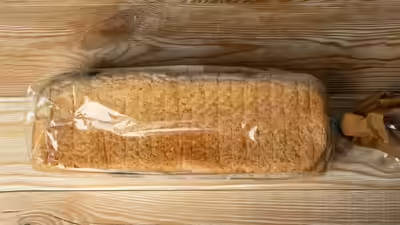6 Minutes Read | Listen to Article

Stale bread and plastic waste are two problems that sit stubbornly on the modern kitchen shelf. A recent study from the University of Grande Dourados confirms what many bakers have long suspected. Plastic wraps and bags do not preserve freshness. Instead, they trap moisture, create the perfect breeding ground for mold, and hasten the process of staling. The solution is deceptively simple. Natural, breathable materials such as cotton cloth, linen wraps, and sturdy paper bags allow bread to retain its soft crumb and crisp crust for several days without generating unnecessary plastic waste.
Bread remains a living food even after baking. Its texture and flavor are shaped by chemical changes that continue long after it leaves the oven. Proper storage determines whether those changes lead to delicate softness or to dryness and spoilage. Air circulation is the decisive factor. Cloth wraps, paper bags, or a well-made bread box provide just enough airflow to slow down mold and prevent sogginess. The result is bread that tastes and feels closer to the day it was baked.
There are practical techniques to extend freshness further. Keep bread at room temperature in a cool, dry place, and avoid the refrigerator, which accelerates staling. Slice only what you plan to eat immediately, since a whole loaf lasts longer intact. For longer storage, freeze bread wrapped in paper or cloth and thaw only what you need. These small adjustments add up to loaves that remain soft, flavorful, and resilient for days.
The benefits go beyond the kitchen table. Natural storage reduces plastic waste, preserves flavor, and prevents chemical contact from synthetic packaging. It is better for the environment, better for taste, and better for health. A loaf of bread deserves respect. Storing it with care ensures that every slice rewards you with freshness.
**This news was published on Times of India on 28th August, 2025.
Source Click
 Plant protein vs. anima...
Plant protein vs. anima...
 National Red Wine Day...
National Red Wine Day...